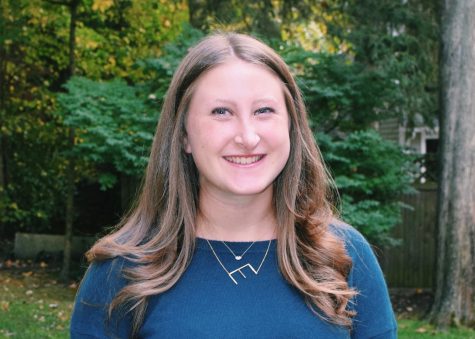Members of the Wake Forest community have responded quickly and effectively to the devastation of Hurricane Harvey by organizing clothing drives and fundraisers.
Throughout the month of September, the Wake Forest School of Divinity is holding an event titled “Building Bridges with Britches,” which aims to support families and communities affected by the devastation of Hurricane Harvey.
Shonda Jones, associate dean of admissions and student services in the Divinity School, stated that one of her students had read that victims in Houston were in need of basic clothing items like underwear, socks and diapers because many people do not think to donate those types of items. After hearing this, another student came up with the name “Building Bridges with Britches” and the project was born.
Although many members of the Wake Forest community donated to this drive, many Divinity School students brought this project to the attention of their own churches, which greatly helped to spread the word. All of the donations will be sent to the Covenant Church in Houston, of which the Senior Minister is Wake Forest alum Laura Mayo.
When asked what she would say to those in Houston affected by this disaster, Jones emphasized that the Wake Forest community is their community and she hopes that they can benefit from our small token of efforts to rebuild their lives.
“We at the Divinity School recognize that they are not alone,” Jones said. “Though they aren’t close to us in proximity, they are close to us in heart.”
Looking to the future, Jones expressed her concerns for those affected by Hurricane Irma so shortly after the devastation of Hurricane Harvey. She and students involved in the project are working on ways to incorporate those victims in their efforts. Though there is no particular path to accomplish this, like the connection between the university and Mayo’s congregation, the group recognizes that there is need there as well.
Shortly after “Building Bridges with Britches” was announced, other groups in the community, such as the athletic department, were eager to join their efforts.
Amanda Horton, assistant athletic director in student athlete development, contacted Jones and shared her idea to place donation bins at athletic games to target more students as well as the general public. The athletic department is now officially partnering with the Divinity School in their efforts.
However, Divinity School students were not the only ones with the idea to donate such items. The Allied Health Student Association and the School of Business have both created donation drives to benefit those suffering in Houston.
Nia Carter, president of the Allied Health Student Association, says that the organization decided to solicit diapers, feminine products and toiletries as part of a donation drive. In discussing the project, Carter stated, “Fortunately, Wake Forest’s awesome student body and faculty helped us get four boxes full of donations. The donations were recently shipped to the Texas Diaper Bank where they will be distributed to various shelters.”
The School of Business donation drive titled “BizDeacs get behind Texas” hopes to also collect diapers that they can donate to those affected by Hurricane Harvey.
Additionally, Stan Meiburg, former EPA officer and Wake Forest alum, provided insight on the logistics regarding the aftermath of an event like Hurricane Harvey. Meiberg served the agency for 39 years and worked at the EPA regional office in Atlanta during the time of Hurricane Katrina, giving him ample experience in this area. He states that the single biggest job of the EPA following an event of this magnitude is the cleaning up of hazardous materials, which can range from wallboard from houses to construction material and debris. It is also necessary to figure out how to dispose of these materials efficiently and effectively.
Recoveries from these disasters take longer than just three or four weeks. Due to the effects of the hurricane, there is a shortage of skilled labor to begin construction projects in an attempt to rebuild the areas most highly effected. Additionally, when it comes to hurricanes, the individual states take the lead in handling the situation.
When asked what advice he would give members of the community who want to help in the aftermath of this disaster, Meiburg stated, “Money always helps.” However, he cautions people to conduct careful research on who the money will be donated to, and to make sure the organizations are reputable.
He recommends donating money to organizations that help victims mentally recover and move past a situation like this because these organizations are the ones least funded by the government.

















